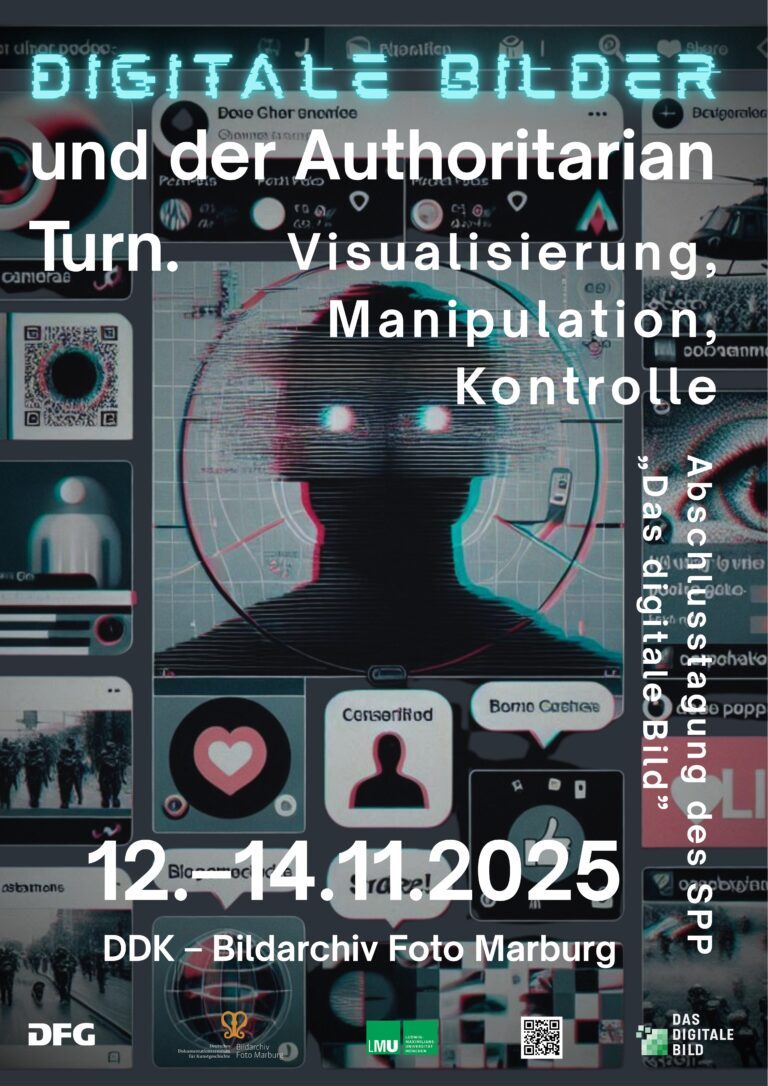SPP-Final Conference: “Digitale Bilder und der Authoritarian Turn. Visualization, Manipulation, Control”
The global political order is undergoing rapid and profound transformations. Long-standing assumptions of liberal democratic consensus are eroding, replaced in many parts of the world—including the West—by new forms of authoritarianism. These shifts are not only political or institutional; they are also deeply visual.
Digital images play a crucial role in this authoritarian turn. Oncen considered manipulable yet tethered to reality, images today are increasingly synthetic, algorithmically generated, and distributed through opaque, corporate-controlled infrastructures. Their ability to mobilize emotions, manipulate publics, and consolidate power has grown exponentially with the rise of social media platforms.
This conference explores how digital images are implicated in the emergence and consolidation of authoritarian regimes, how they function within the platform economies of the present, and whether they might still harbor emancipatory potential.
Registration for online participation:
If you would like to participate online, please use the form on the German page.
You will not receive a confirmation email after submitting the form.
We will send the Zoom access link to the email address you provided on 4 November.
If you have not received an email by 5 November (and cannot find an email from us in your spam folder), please contact us directly at: dasdigitalebild@fotomarburg.de.
The main conference language will be German.
For security reasons, please do not share the Zoom link with unauthorised third persons.
We thank you in advance for your interest and look forward to your participation!

Conference Program:
ab 12:30 Uhr: 13:00-13:30 Uhr: 13:30-14:30 Uhr: I. Angewandte Technik: Anwendung, Ästhetik und ErkenntnisprozessProjekte:
14:30-15:30 Uhr: II. Transformationen: geschichtliche Kontexte und EntwicklungsprozesseProjekte:
15:30-16:00 Uhr: Kaffeepause
|
09:00-10:00 Uhr: Gespräch I Julian Stallabrass, retired professor at the Courtauld Institute in London Sara Benninga, Tel Aviv University
Elisa Linseisen, Hochschule für bildende Künste Hamburg Chris Tedjasukmana, Johannes Gutenberg-Universität Mainz
11:30-12:30 Uhr: Gespräch III Ralph Ewerth, Philipps-Universität Marburg 12:30-14:30 Uhr: Mittagspause (Selbstversorgung) 14:30-16:30 Uhr: Round Table 16:30-18:00 Uhr Apéro 18:00-19:00 Uhr: Keynote Commanding Vision: Theses and Counter-theses on Visual Power and the Authoritarian TurnPaul Frosh, The Hebrew University of Jerusalem |
|
09:00-10.30 Uhr: Workshop 10:30-11:00 Uhr: Kaffeepause 11:00-12:30 Uhr: Standortbestimmung
|